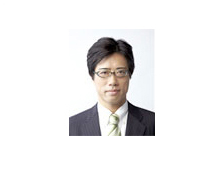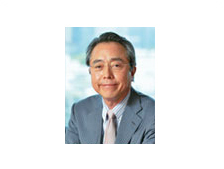Third-party Opinion

Toshihiko Fujii
Visiting Professor. Graduate School of Economic Science. Saitama University
President Sato points out that a crucial element in promoting CSR is recognizing the factors that create an “environment that allows people to do their jobs.” That is a keen insight. Breaking it down further, there are two sides to CSR. One is recognizing the adverse impacts that business activities potentially have on society and the environment, and taking steps to minimize those impacts to the greatest extent possible. The other is actively contributing to solutions to the issues facing society. By capably managing both of these efforts, a company can build the foundation for an environment that allows people to do their jobs. I want to evaluate Sojitz' s CSR initiatives this year from these two aspects.
Mine development and supply chains in particular are problematic in terms of avoiding adverse impacts. Concerning mine development, the report covers the Sojitz Group' s initiatives at an open-cut coal mine in Australia. I would like to see disclosure of Sojitz Group' s potential problems and initiatives at other development projects in which Sojitz is participating. Regarding supply chains, the results of questionnaires and visits to suppliers were again reported this year, but there is still room for improvement in areas including the degree of disclosure. Diversifying methods of communication and strengthening on-site initiatives in the supply chain are mentioned as tasks to be undertaken next year. I look forward to seeing these plans take shape.
Next, I will evaluate the company' s active efforts to address issues facing society. Ideally, a company' s approach to solving social issues is embedded in the execution of its business. From that perspective, it is worth looking at the Sojitz Group' s activities in the green chemical business. I want to see how the Group can use its wisdom to create and expand markets for environmentally friendly chemical products. The afforestation and woodchip production business in Vietnam and Mozambique and the desalination project in sub-Saharan Africa are also good examples of how the Sojitz Group combines business activities with solutions to social and environmental issues.
One notable feature of this year' s report is its detailed description of the Sojitz Group' s global human resource strategy. Global leaders are employees who have a sense of mission to improve global society. I want the Sojitz Group to continue to carry out CSR initiatives and global human resource development as a unified effort. The Group is also making progress in its employee diversity initiatives. The appointment of a woman as corporate auditor is undoubtedly a step forward, but at the same time it is important that these diversity measures do not end with symbolic gestures.
Regarding dialogue with stakeholders, I have pointed this out for several years, but I really want the company to expand its dialogue with NGOs, which are active on an international scale. The concerns of NGOs and private businesses are inherently different. However, for that very reason, dialogue with them should be invaluable in determining where there are risks that companies should avoid, and where there are social and environmental issues that companies can contribute to solving.
Finally, I want to comment on the integrated report. CSR-related issues are expanding and becoming more and more complicated, so companies need to have a high level of expertise on issues concerning society and the environment. On the other hand, a by-product of making CSR more specialized is that it comes to be viewed as a separate undertaking from business activities. The call for integrated reporting arose from this situation. As a management issue, CSR supports an “environment that allows people to do their jobs” and increases corporate value by permeating the processes of all business activities, and integrated reporting is an attempt to communicate that in an easy-to-understand format. This is not an easy task. This year' s report clearly reflects a greater focus on integrated reporting. To further raise the degree of integration, it might be worth also considering approaches to integrate CSR more deeply into the reports on each business division - for example, by specifying the strategic value of biochemicals in the review of the Chemicals Division. I hope to see continued efforts toward a true integrated report.
Comment on Third-party Opinion
I sincerely thank Mr. Fujii for his valued opinion on the Sojitz Group’s CSR initiatives described in Annual Report 2013.
His evaluation focused on two aspects of our CSR.
Regarding the first - minimization of potential adverse impacts - we are emphasizing awareness of such impacts as a company that conducts business worldwide. Our efforts include disclosure of environmental measures in our business activities, evaluation of our environmental and social impact, and CSR initiatives in supply chains. However, we recognize the need to strengthen these efforts further, and are working to improve our current programs. We will also enhance disclosure.
As for the second aspect - contributing to solutions to issues facing society - the Sojitz Group has always worked with local partners to turn the needs of local communities around the world into viable businesses. Consequently, many of our businesses have led directly to resolving social issues. We want to inform stakeholders about the multifaceted value of these businesses in our integrated report.
Recently, we have often been called on to go beyond simply complying with regulations in our consideration for society and the environment. Dialogue with internationally active NGOs and other experts, which Mr. Fujii mentioned, is something we would like to pursue to better understand which points we can apply in our business activities.
The Sojitz Group’s greatest asset, and the source of its CSR promotion efforts, is its people. In a rapidly changing operating environment, we need to create new value together with our diverse partners around the world in order to produce the “new sources of wealth” referred to in the Sojitz Group Statement. It is therefore important for each of our employees to see the world not only through the lens of Japan, but with a global perspective. We will continue to enhance human resource development to cultivate that perspective.
We will place importance on recognizing the factors that engender a “management environment that enables us to do our jobs,” in the words of President Sato, as we continue to work toward the realization of the Sojitz Group Statement.

Shinichi Taniguchi
Executive Vice Predident
CSR Comittee Chair Sojitz Corporation.
